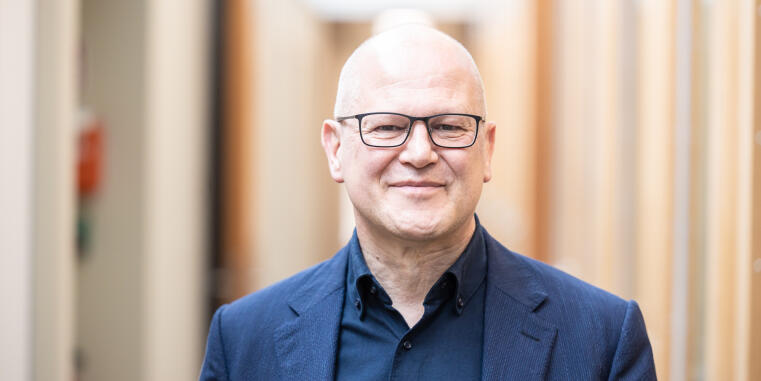

Am 8. Juli 2024 hielt Prof. Dr. Thomas Gutmann seine Fellow-Lecture zum Thema „‚Cultural Appropriation‘. Questions about a concept“.
Abstract:
The “prohibition” of cultural appropriation restricts access to intangible cultural property. The lecture first demonstrates why the concept of “cultural appropriation” does not stand up to normative analysis and is unsuitable as a tool of criticism. All human “cultures” are hybrids; they have all emerged through the reception of other cultures, are interwoven with other cultures and are the result of productive (and usually uncontrolled) adoption processes. So to what extent can an immaterial cultural good belong to a community, or more precisely: to a collective that, unlike other collectives, alone has the necessary prerequisites for dealing with it appropriately? To what extent can “culture” even be particular in this sense? Secondly, the questions of cultural property, cultural heritage and thus the right to dispose of one’s own imagined cultural tradition, which today are predominantly negotiated in legal and moral philosophy, seem to be based on the paradox that “culture” as an always fluid, hybrid and dynamic practice based on implicit knowledge, is pressed into the static and reifying concepts of (intellectual) property or the right of ownership. For law (also for theories of moral rights), cultural property and inheritance claims also raise theoretically intricate problems of collective or group rights. The main questions here are what degree of unity, identity, organization, capacity to act or at least shared interests makes a group a possible legal entity, who can represent such a group in the exercise of collective rights and to what extent the institutional strengthening of (minority) cultures and their respective group autonomy would maintain traditional power relations within these groups and thus take place at the expense of individual members or subgroups. Of course, the misguided accusation of cultural appropriation often conceals other phenomena that are very well suited as critical concepts, such as exploitation, oppression, disregard and denied recognition. These concepts need to be sharpened and salvaged from the rubble of the cultural appropriation discourse.
An den Vortrag von Thomas Gutman schloss sich eine lebhafte Diskussion an, die sowohl positive Kommentare als auch kritische Fragen enthielt. So wurde beispielsweise die Frage gestellt, ob der Diskurs über kulturelle Aneignung, der hochgradig ideologisch geprägt ist, überhaupt Raum für eine rationale Argumentation lasse. Sollte man statt einer vorwiegend philosophisch-normativen Perspektive nicht eher eine sozial-psychologische Perspektive in den Vordergrund stellen?
Es wurde auch diskutiert, auf welche alternativen Weisen der Diskurs über kulturelle Aneignung geführt werden könnte. Gäbe es etwa die Möglichkeit, das Konzept aus einer rein wirtschaftlichen Perspektive zu betrachten? Oder ist kulturelle Aneignung immer notwendig mit Respektlosigkeit verbunden? Braucht der Diskurs notwendigerweise eine Theorie des kollektiven Eigentums? Oder sollten wir den Begriff der kulturellen Aneignung am Ende ganz abschaffen und direkt auf Ungerechtigkeiten verweisen?
Ein weiterer wichtiger Punkt war die Diskussion über alternative Terminologien. So diskutierte die Gruppe darüber, ob zum Beispiel der Begriff der Übersetzung ertragreicher wäre, um das zu beschreiben, worauf der Begriff der Aneignung referiert.
Prof. Dr. Thomas Gutmann ist Inhaber des Lehrstuhls für Bürgerliches Recht, Rechtsphilosophie und Medizinrecht an der Universität Münster und Inhouse-Fellow der Kolleg-Forschungsgruppe „Zugang zu kulturellen Gütern im digitalen Wandel“. Er ist Akademischer Leiter des Masterstudiengangs (LL.M.) „Medizinrecht“ und Mitglied (Principal Investigator) des Exzellenzclusters „Religion und Politik in den Kulturen der Vormoderne und der Moderne“. Von 2010 bis 2018 war er Sprecher der Kolleg-Forschergruppe 1209 „Theoretische Grundfragen der Normenbegründung in Medizinethik und Biopolitik / Centre for Advanced Study in Bioethics“. Seine Forschungsschwerpunkte sind Rchtstheorie und -philosophie, Grundfragen des Medizinrechts, der medizinischen Ethik und der Biopolitik, Theorie des Privatrechts, Recht und Gesellschaftstheorie sowie Erbrecht.

